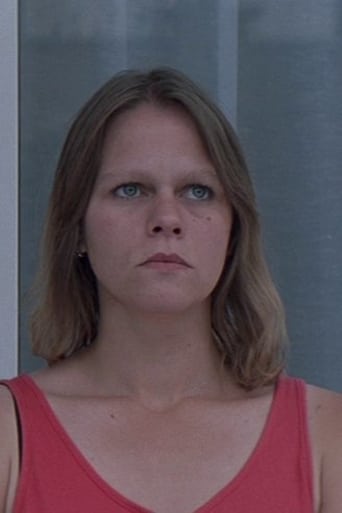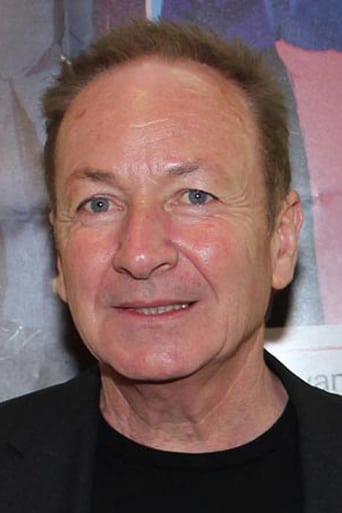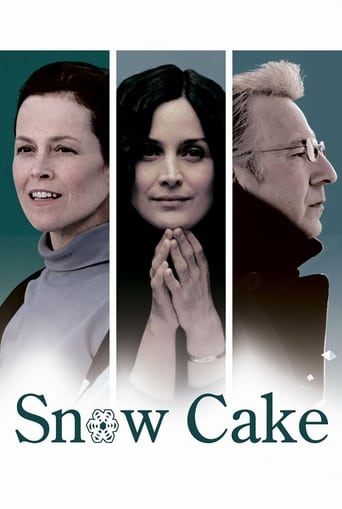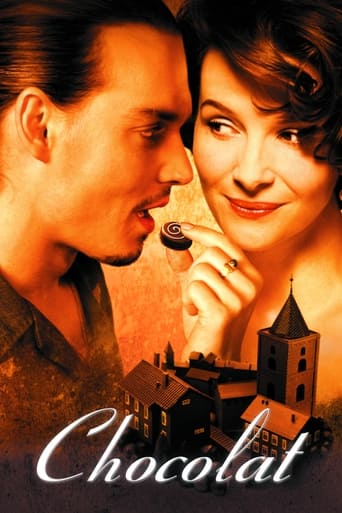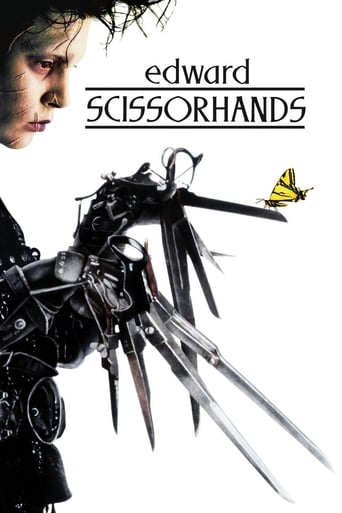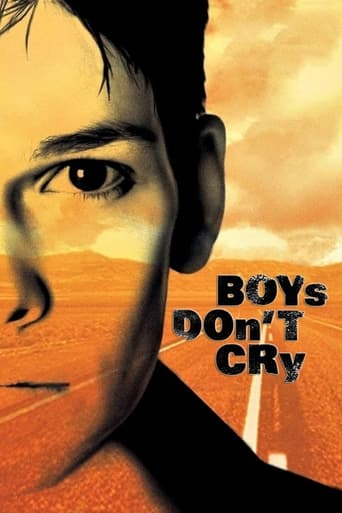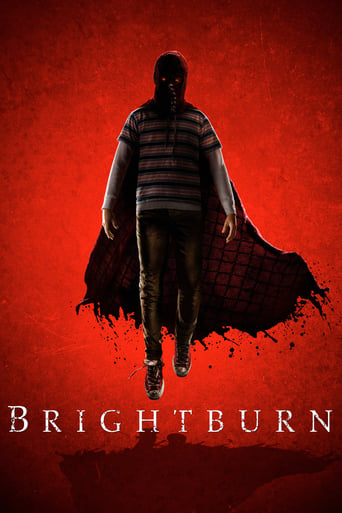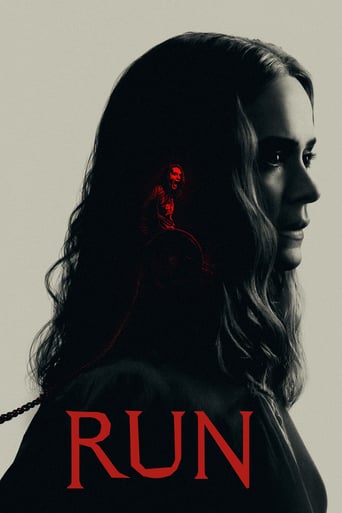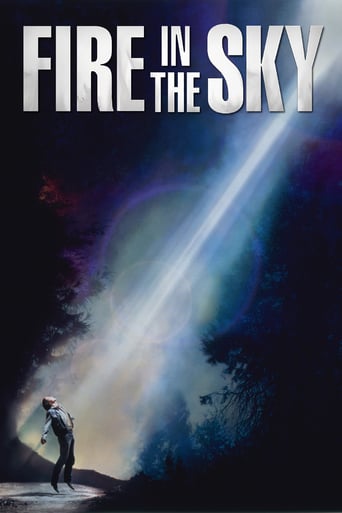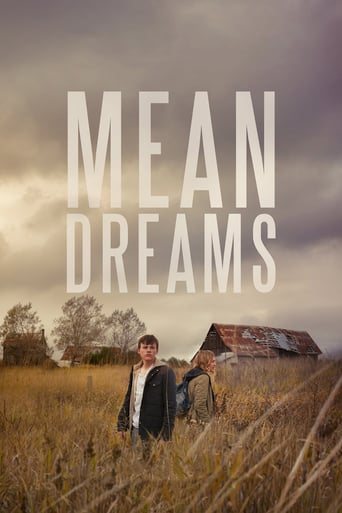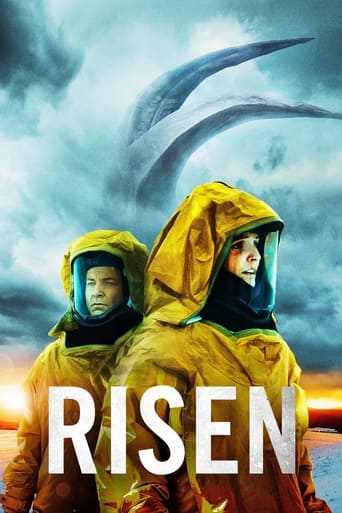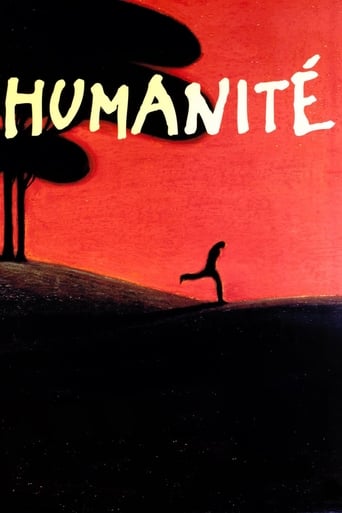

Humanité (2000)
In a quiet little French town, two detectives are tasked with investigating the brutal rape and murder of a preteen girl.
Watch Trailer
Cast


Similar titles
Reviews
He races across the landscape, determined to climb a hill. He wants height, ascension, but is doomed to failure. Cut to close ups of feet, the man's once frenetic pace thwarted by a now muddy earth. He collapses, his palms and knees sinking into the mire. We watch for long moments as the man lays there, motionless in the mud. Gravity seems to be taking its toll, the earth's pull tugging at his bones, the mud consuming him, sucking him into the filth, swallowing him whole until...He pulls himself up. His name is Detective Pharaon de Winter, and he has a job to do.In this opening sequence, director Bruno Dumont sets up a dichotomy which runs throughout "Le Humanite": that of a character seeking to latch onto some modicum of humanity, of divinity, of spiritual uplift, whilst being continuously pulled back down by the material weight of the world. As we will see, this tug-of-war between the corporeal and the celestian is never resolved. Pharaon then walks up to his car, pulls himself in, starts the engine and...stops. He is not your ordinary police detective. Played by Emmanuel Schotté, a non professional actor with a brilliantly expressive face, Pharaon is a man profoundly wounded. Having lost his family years ago – an event which triggered an ontological shock – Pharaon navigates this film with the wide eyes of a sad child. He sees an "abomination" in everything. As such, Pharaon wants to run away. A little girl returning home from school has been raped, her dead body found. It is Pharaon's duty as a detective to appear at the crime scene. But how can he? Instead he starts his car radio and listens to some orchestral music, its divine sounds lulling him, like the hill, into a moment of security. His car radio then warbles. "I'm on my way," he unconvincingly tells the dispatcher. Already we know this is not your regular cop movie. Every gesture, every action, is a chore.The girl's corpse is horrific. Dumont's camera lingers on her bloody vagina, torn open, shredded and graphically shown. These images haunt the entire film, the film's cast weighed down, traumatised and sickened by what we ourselves have now seen. The girl's body is itself arranged to resemble "Étant donnés", a famous painting by Marcel Duchamp. Pharaon de Winter is also the name of a famous 19th century painter who resolved to show his audience the fourth dimension. What our hero sees is only suffering.In most cop movies, the corpse is "revived" by the hustle and the bustle of detectives, photographers and onlookers. But Dumont does the opposite. Not only does his tranquil crime scene suggest a total absence of life, but the police procedural that follows – despite the girl's murder ultimately (seemingly) being solved – suggests the impossibility for closure. This is the reality Pharaon already understands: solving the murder will not solve the problem of the girl's murder. Inhumanity is in humanity and humanity can not be solved.What then is the role of the police officer? To what ends does he exist? Pharaon not only seems incapable of believing in himself as a cop, but revokes his role as a man of action and/or pursuit in favour for passive observation. He is disposed against his job and what little he does is tinged with a sense of supreme hopelessness.For forty minutes the film radically ignores its murder plot. Instead, we watch as Pharaon goes about various daily routines. He talks with his neighbour Domino (her name suggesting dual identities), is shown to play the piano to drown out the "noise" of TV violence, and is shown to have contempt for Joseph, the lover of Domino, who Pharaon views as being a vulgar, child-hating, xenophobic, violent, brute. While Joseph embodies man's capacity for barbarity, a barbarity Pharon does not believe can be put right, his "nature" may itself only exist in Pharon's mind; a product of the cop's jealousies. Conversely, Joseph may be like most violence: in plain sight, obvious, but denied thanks to shared, mass denial. Regardless, Joseph's "normal" romantic relationship with Domino is shown to be base and animalistic, the film blurring the lines between love, sex, kindness and dark opportunism. Domino is herself a dehumanised factory worker (she makes paint – symbolically covering things up), futilely dreaming of striking against the unfair employers who habitually psychically rape her. When she offers her body to Pharaon, he rejects her outright. He will not be another abuser.Eventually Pharaon starts investigating the murder, but it's a slow affair. He spends most of his time gazing longingly at the heavens, dreaming of levitating or lovingly kissing/hugging criminals. He also tends to a vegetable allotment. With everyone in the film living in cramped, impersonal houses, this allotment is one of the few positive outlets in the film; a means of nurturing, creation and indeed action itself.When the criminal is eventually found, Pharaon kisses the man on his lips. A motherly gesture, Pharon wants to make things right, sooth the criminal, tease out some goodness, perhaps even take away the criminal's sins. But we're not even sure if the criminal is in fact the criminal. He exists in a more metaphysical space: he is everyone's neighbour.Last shot: Pharaon sitting in the criminal's chair, handcuffed. He wants to be in the man's shoes, wants to find some glimmer of humanity, some semblance of goodness. He then looks out a window and up into the heavens and smiles. He's recalling an earlier moment. The film's single moment of hope.9/10 - Like Robert Bresson, Dumont uses non-professional actors, and captures a kind of matter-of-fact transcendentality within our ordinary material world. For both directors, "spirit" infuses everything, the corporeal and the "spiritual" continually clash, and plot is told through elliptical, elusive moments.
Bruno Dumont is something of a controversial filmmaker, producing singular films that draw on the influence of people like Robert Bresson, Ingmar Bergman and early Michael Haneke in a clear attempt to create an enhanced state of realism that works both for and against the film and the audience. Also, like his contemporaries Gaspar Noé and Carlos Reygadas, it could be argued that Dumont makes films that challenge the viewer to engage with a story that will undoubtedly take us to some very dark and often shockingly immoral places; giving us characters that are morally ambiguous, often loathsome and, in the case of our central protagonist here, almost pitiful. There aren't many filmmakers who would choose as their hero of a bleak detective thriller an innocent man-child who seems to be as socially inept and emotionally damaged as a person could possibly be, and yet, with Police Chief Pharaon De Winter, that is exactly what we get.Dumont makes his bleak, desolate vision obvious right from the start, with the horrendous discovery of a murdered and mutilated child left naked and bleeding in a stark, autumnal field. The image is both shocking and brutal; with Dumont giving us a punch to the stomach right from the very first frame with a lingering close-up of the wound and filleted body parts. It's an image that both establishes and surmises the film as a thematic whole; the loss of innocence being central both with the murder of the child and with the character of Pharaon himself. It is the idea of back-story and the fragile demeanour of Pharaon - and to an extent the evocative performance of non-professional actor Emmanuel Schotte - which anchors the film, giving the audience an emotional spectator. He is also our representation within the film, mirroring the feelings of the audience if not quite our actions. After the aforementioned discovery there are no macho heroics; Pharaon reacts on an emotional level unseen in films of this nature, running back to his car, tears streaming down his face, lost in a kind of detached melancholy that continues throughout the film.Over the course of the film, the narrative continues to unfold at a slow and deliberate pace, though we quickly realise that the real detective story at hand is not necessarily about the murder of the child, but more importantly, what has happened to make Pharaon the way he is. Has Pharaon had some sinister part in all of this, or is he merely a constant observer. The idea of voyeurism is an important one in Dumont's work, with the camera rarely moving; always static, removed from the context of the scene and merely recording things for our benefit. This gives the film a greater degree of realism, though may be a little tiresome for viewers weaned on a more westernised approach to cinema, with one hypnotic scene in particular finding our central protagonist tending his allotment for what seems like the best part of fifteen minutes.As the film continues to unfold, and the clues begin to add up, we realise that this isn't going to have a clear-cut, moralistic ending akin to a routine police/crime thriller. Then again, with a central character who lives at home with a controlling mother, who adores the woman who lives down the street and allows her boyfriend to belittle him at every available opportunity and often stands monosyllabic at the back of a room... how on earth could it? With L'Humanité (1999), Dumont has attempted to create a stripped down, bare-naked form of ambient cinema, in which it is the little character details and passages of silence, broken only by shocking violence and mechanical sex, that go towards creating the story.The ending of the film continues in this same vein and acts as a sort of shocking epiphany, in which every action and subtle line of dialog that has occurred during the epic running time is suddenly given a whole new meaning. Dumont has proved with this, his second feature, that he can reach beyond the tiresome kitchen sink theatrics of his first film, La Vie de Jesus (1997) and incorporate distancing naturalistic techniques (no camera movements, no artificial light, non-professional actors, etc) to create a film that is both horrendous and intoxicating in equal measures. Though enjoy is certainly the wrong word to use with a film this bleak and confrontational, those amongst you who admire the work of forward thinking European auteurs like the aforementioned Michael Haneke, Gaspar Noé and Lars von Trier will certainly admire and appreciate Dumont's shattering tour-de-force.
This is a thoughtful and original film and the polar opposite of any Hollywood movie. It's slight plot is not what the film is about, it is in many ways a mood piece. The opening image of a vast landscape a lone figure running along the horizon is accompanied only by the sound of the heavy breaths of the runner, and sets the tone for the entire film.The film is character driven and contains long periods of near silence and beautifully shot landscape. Its basic plot, the investigation into the rape and murder of a young girl, would suggest it is a thriller but this film is about it's characters first and foremost.Our hero Pharon is a policeman who lives at home with his mother He has suffered the loss of his wife and child, how we never find out. The crime he investigates pushes him into a state of utter despair. This despair is not shown to us with any overblown emotional fireworks but with a heavy and quite sorrow which he carries throughout the film. He is portrayed by Emmanuel Schotte who justly won the best actor award at Cannes, and was unjustly booed for doing so. This may have something to with the fact that he is retired accountant rather than an actor. His face expresses the sheer anguish is a man at the end of his teether, by expressing nothing at all save for thin smile that seems to come not from joy but to stop him from crying.The center of the film is Pharon relationship with his neighbor Domino played by Severine Caneele who won best actress and boos at Cannes to. She is also untrained and delivers a wonderful performance.The investigation moves at a snails pace, and probably offers a more realistic look at police work than most films as witnesses are questioned and requestioned.It is a slow and beautiful film and reminded me strangely of Hal Hartly's work, in that the charters and actors seem to be doing very little but are expressing so much.
This film has been praised as shocking, fascinating, and hypnotic; and I can only conclude that I'm not easily shocked, fascinated, or hypnotized. I was lulled to sleep several times, and watched the film over the course of several days. The film is quite sedately paced. An example:You get a shot of Pharoan looking at his boss's collar. The shot of the collar holds long enough for you to think "Hm, he sweats a lot." The shot holds long enough for you to think "okay, I got that, thanks. He sweats a lot." Then it holds long enough for you to think "All right already! Go wake up the editor."A sequence like that would not be a problem when the cinematography is particularly good, except the cinematography in this film is not. It is competent, straightforward, unstylized, perhaps even dull; in other words, the cinematography serves the story perfectly.The sedate pacing might not be a problem with different cinematography, which would affect the story for the better: the film is a psychological exploration, yet the people we're meant to sympathize with are typically shown in long shots or in closeup but with largely unchanging expressions. If something is going on behind the eyes, we can only guess what it is; and from the slack-jawed expression, we guess that what it is might not even be particularly profound. Wounded, yes, sad, yes, but we've seen that before and better, and it's nothing new. We need a reason to care *this time*, and for many people that reason won't be there.The main character is a cipher, perhaps deliberately so, but the result is a film that doesn't tell you anything, and doesn't even tell you why it doesn't tell you anything--not the nihilism or the weary practicality of some noir films, but merely a bloated anecdote with an obscure or missing point. Unfortunately the anecdote, aside from being quite slow, is also almost completely humorless. The result is a film only for people with extraordinary patience and good will.



